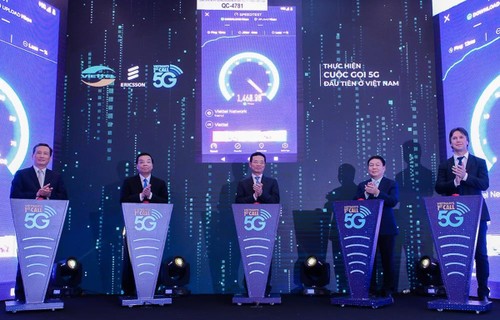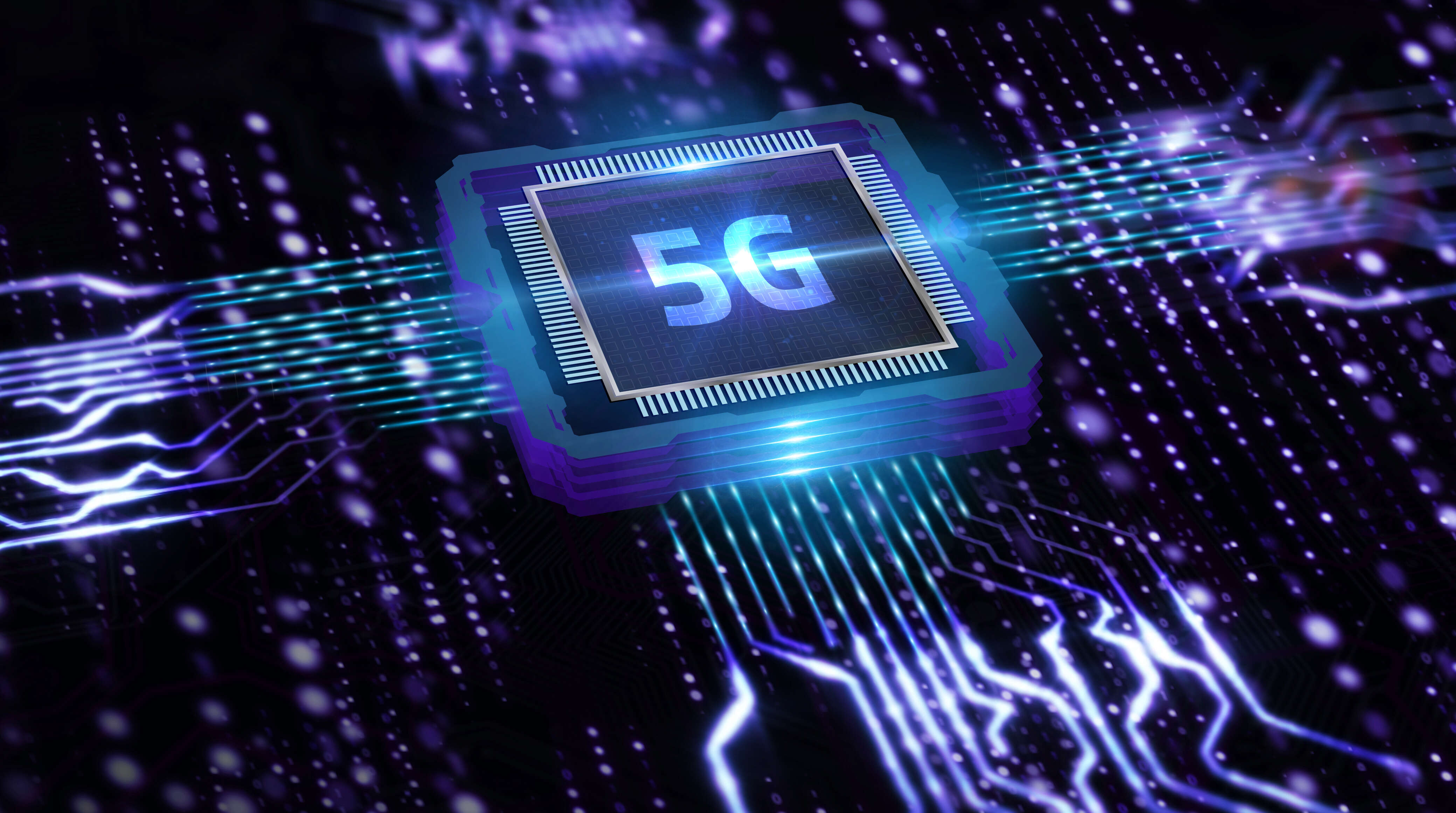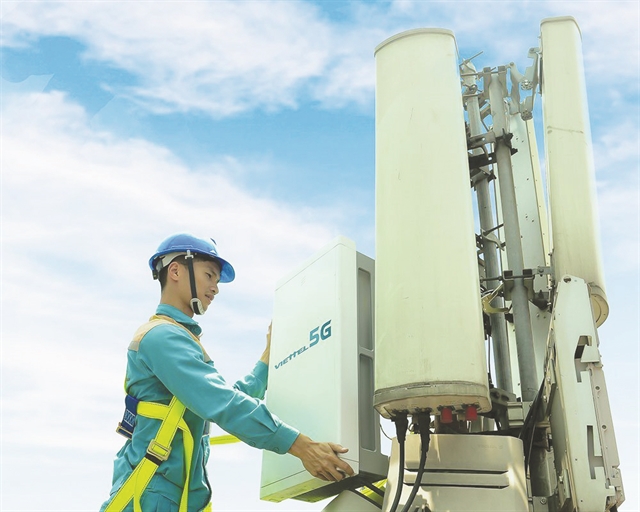The Rise Of 5G In Vietnam: A Technological Revolution In The Making
The Rise of 5G in Vietnam: A Technological Revolution in the Making
Related Articles: The Rise of 5G in Vietnam: A Technological Revolution in the Making
Introduction
With great pleasure, we will explore the intriguing topic related to The Rise of 5G in Vietnam: A Technological Revolution in the Making. Let’s weave interesting information and offer fresh perspectives to the readers.
Table of Content
The Rise of 5G in Vietnam: A Technological Revolution in the Making

Vietnam, a nation experiencing rapid economic growth and technological advancement, is embracing the transformative potential of 5G technology. This next-generation wireless network promises to revolutionize various sectors, from communication and entertainment to healthcare and manufacturing. Understanding the 5G rollout and its impact is crucial for businesses, individuals, and the country as a whole.
A Comprehensive Overview of 5G Deployment in Vietnam
The Vietnamese government recognizes the strategic importance of 5G and has established ambitious plans for its nationwide deployment. The Ministry of Information and Communications (MIC) has been instrumental in setting the stage for 5G, issuing licenses, and outlining regulatory frameworks.
Key Developments:
- Spectrum Allocation: In 2019, the MIC allocated 5G spectrum in the 3.5 GHz and 26 GHz bands to three major telecommunications providers: Viettel, MobiFone, and VinaPhone. This crucial step paved the way for commercial 5G launches.
- Pilot Projects and Trials: Prior to commercialization, various pilot projects and trials were conducted in key cities like Hanoi and Ho Chi Minh City. These initiatives helped assess network performance, identify potential applications, and gather valuable data for future deployments.
- Commercial Launch: The first commercial 5G networks were launched in 2020, initially available in major urban centers. The rollout has been steadily expanding to cover more areas, gradually reaching smaller towns and rural regions.
- Government Support: The government has actively encouraged 5G adoption, providing incentives for businesses to invest in 5G-enabled technologies and applications. This includes financial support, tax breaks, and regulatory streamlining.
- 5G Ecosystem Development: The focus extends beyond network infrastructure to foster a thriving 5G ecosystem. This involves attracting investments in 5G-related research and development, promoting innovation, and nurturing a pool of skilled professionals.
Mapping 5G Coverage in Vietnam:
While a comprehensive, real-time 5G coverage map is not readily available, the information from various sources paints a picture of the current situation:
- Major Urban Centers: Hanoi, Ho Chi Minh City, Da Nang, and other major cities have extensive 5G coverage, with multiple providers offering services.
- Expanding Coverage: 5G networks are steadily expanding to cover more areas, including provincial capitals and key economic hubs.
- Rural Coverage: While rural areas are lagging behind, the government has prioritized extending 5G coverage to these regions to bridge the digital divide and promote inclusive growth.
Benefits of 5G in Vietnam:
5G’s transformative potential is expected to drive significant economic growth and social progress in Vietnam. The benefits extend across various sectors:
1. Enhanced Connectivity and Communication:
- Faster Speeds: 5G offers significantly faster download and upload speeds, enabling seamless streaming, gaming, and video conferencing.
- Lower Latency: Reduced latency, the delay between sending and receiving data, is crucial for real-time applications like autonomous vehicles and remote surgery.
- Increased Capacity: 5G networks can handle a significantly larger volume of data traffic, enabling more users to connect simultaneously.
2. Smart Cities and Urban Development:
- Smart Infrastructure: 5G facilitates the development of smart cities by enabling connected infrastructure like smart traffic systems, intelligent street lighting, and waste management solutions.
- Improved Public Services: Enhanced connectivity empowers better public services like e-governance, online education, and telehealth.
- Urban Planning and Management: 5G enables real-time data collection and analysis, facilitating better urban planning and management.
3. Industrial Automation and Manufacturing:
- Industry 4.0: 5G empowers the transition to Industry 4.0, where manufacturing processes are automated, interconnected, and data-driven.
- Smart Factories: 5G enables the development of smart factories, optimizing production processes, reducing downtime, and enhancing efficiency.
- Remote Monitoring and Control: 5G facilitates remote monitoring and control of industrial processes, improving safety and productivity.
4. Healthcare and Medical Advancements:
- Telehealth and Remote Consultations: 5G enables high-quality video conferencing for telehealth services, connecting patients with specialists remotely.
- Remote Surgery and Diagnostics: 5G facilitates remote surgery and diagnostics, allowing skilled surgeons to perform procedures from distant locations.
- Medical Research and Development: 5G supports real-time data sharing and analysis, accelerating medical research and development.
5. Entertainment and Media:
- Immersive Experiences: 5G enables immersive entertainment experiences, such as virtual reality, augmented reality, and high-definition video streaming.
- Cloud Gaming: 5G facilitates cloud gaming, allowing users to play high-quality games without the need for expensive hardware.
- Enhanced Digital Content Creation: 5G empowers creators with faster upload speeds and greater bandwidth, enabling high-quality content creation and distribution.
Challenges and Considerations:
While the benefits of 5G are undeniable, Vietnam faces several challenges in its implementation and adoption:
- Infrastructure Development: Building a robust 5G infrastructure requires significant investments in network equipment, fiber optic cables, and supporting technologies.
- Digital Divide: Ensuring equitable access to 5G services is crucial to avoid widening the digital divide between urban and rural areas.
- Skill Gap: The transition to 5G requires a skilled workforce with expertise in 5G technologies, network management, and cybersecurity.
- Cybersecurity Concerns: The interconnected nature of 5G networks raises cybersecurity concerns, requiring robust measures to protect against cyberattacks and data breaches.
FAQs about 5G in Vietnam:
1. What are the key benefits of 5G for businesses in Vietnam?
5G offers businesses in Vietnam a range of advantages, including:
- Improved Productivity and Efficiency: 5G enables automation, real-time data analysis, and remote monitoring, leading to increased productivity and efficiency across various sectors.
- New Business Opportunities: 5G opens up new business opportunities in areas like smart cities, e-commerce, and digital services.
- Enhanced Customer Experience: 5G empowers businesses to offer enhanced customer experiences through faster speeds, lower latency, and personalized services.
2. How will 5G impact the Vietnamese economy?
5G is expected to have a significant positive impact on the Vietnamese economy, contributing to:
- Economic Growth: 5G-enabled technologies and applications will drive economic growth by fostering innovation, creating new jobs, and enhancing productivity.
- Digital Transformation: 5G will accelerate the digital transformation of various sectors, leading to increased efficiency, productivity, and competitiveness.
- Improved Living Standards: 5G will enhance the quality of life for Vietnamese citizens by providing access to better healthcare, education, and entertainment services.
3. What are the potential risks associated with 5G in Vietnam?
While 5G offers numerous benefits, it also presents certain risks, including:
- Cybersecurity Threats: 5G networks are more vulnerable to cyberattacks due to their interconnected nature, requiring robust security measures.
- Data Privacy Concerns: The vast amount of data generated by 5G networks raises concerns about data privacy and security.
- Job Displacement: Automation and technological advancements driven by 5G may lead to job displacement in certain sectors.
4. What measures are being taken to address the digital divide in Vietnam?
The Vietnamese government is implementing various measures to address the digital divide, including:
- Expanding Network Coverage: Expanding 5G coverage to rural areas is crucial to ensure equitable access to digital services.
- Promoting Digital Literacy: Initiatives to promote digital literacy among rural communities will empower them to utilize 5G effectively.
- Government Support for Rural Businesses: Providing financial and technical support to rural businesses will encourage them to adopt 5G technologies.
5. What are the future prospects of 5G in Vietnam?
The future of 5G in Vietnam looks promising, with continued investments in infrastructure, ecosystem development, and innovation.
- Expanding Coverage and Applications: 5G coverage is expected to expand rapidly, reaching more areas and enabling a wider range of applications.
- Technological Advancements: Continued advancements in 5G technologies will lead to even faster speeds, lower latency, and greater capacity.
- Integration with Other Technologies: 5G will be integrated with other technologies like artificial intelligence, big data, and the Internet of Things (IoT), creating a powerful synergy.
Tips for Businesses in Vietnam:
- Embrace 5G Technology: Businesses should proactively explore and embrace 5G technology to leverage its benefits.
- Develop 5G-Enabled Products and Services: Businesses should develop products and services that capitalize on the unique features of 5G.
- Invest in 5G Training and Development: Businesses should invest in training and development programs to equip their workforce with 5G skills.
- Collaborate with 5G Ecosystem Players: Businesses should collaborate with telecommunications providers, technology companies, and research institutions to develop and implement 5G solutions.
Conclusion:
5G is poised to transform Vietnam’s technological landscape, driving economic growth, social progress, and improved living standards. The government’s commitment to 5G deployment, coupled with the efforts of telecommunications providers and businesses, will be crucial in realizing the full potential of this revolutionary technology.
As Vietnam navigates the 5G revolution, addressing challenges related to infrastructure, digital divide, cybersecurity, and workforce development will be critical to ensure a successful and inclusive transition. The future of Vietnam’s technological landscape is intertwined with the successful implementation and adoption of 5G.
![[INFORGRAPHIC] 5G TECHNOLOGY: ENORMOUS POTENTIAL](https://vietnamcredit.com.vn/Media/News/inforgraphic-5g-technology-enormous-potential.png)







Closure
Thus, we hope this article has provided valuable insights into The Rise of 5G in Vietnam: A Technological Revolution in the Making. We hope you find this article informative and beneficial. See you in our next article!